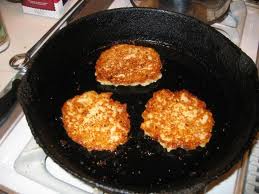Hanukkah has many meanings and has celebrated many different values over the years – military victory, political independence, religious freedom, reunification with God, the capacity of people to create their own destiny, the ultimate victory of good over evil, and many more. But through it all was the lighting of the Menorah and its promise that light could be found at even the darkest of times. Now a rabbi in Indiana is living that message in a profound and moving way.
Rabbi Yehoshua Chincholker of the Indiana University Chabad House will be using a rock which was thrown through the Jewish student center’s window to build his menorah this year. He is literally taking a weapon of destruction and turning it into an instrument of light and joy. I know, the Messiah has not yet arrived, but it’s hard to read this story and not think of Isaiah’s words (2:4), They will beat their swords into plowshares and their spears into pruning hooks.
I wonder if there isn’t a powerful lesson in Rabbi Chincholker’s action, a lesson which we could incorporate into our own lives given that we all experience assaults and intrusions in the course of daily life. What if we thought long and hard about how to use those assaults and intrusions as building blocks for our own celebration?
I am not minimizing the real pain or even danger that people experience, nor do I believe that this approach is always the wisest one. But we would all be happier if among the responses we had when we fell set upon by life, was to use the very things which get us down as part of the process of building ourselves back up.
We have it within us to re-purpose the challenges in our lives in much the way that Rabbi Chincholker is re-purposing that rock which was hurled through his window. What Isaiah promises is within our grasp to do, at least some of the time, if not always. So why not start now? If we did, I think we would be giving ourselves a pretty great Hanukkah present, not to mention setting ourselves and our world on a course to fulfilling Isaiah’s promise.
More from Beliefnet and our partners

